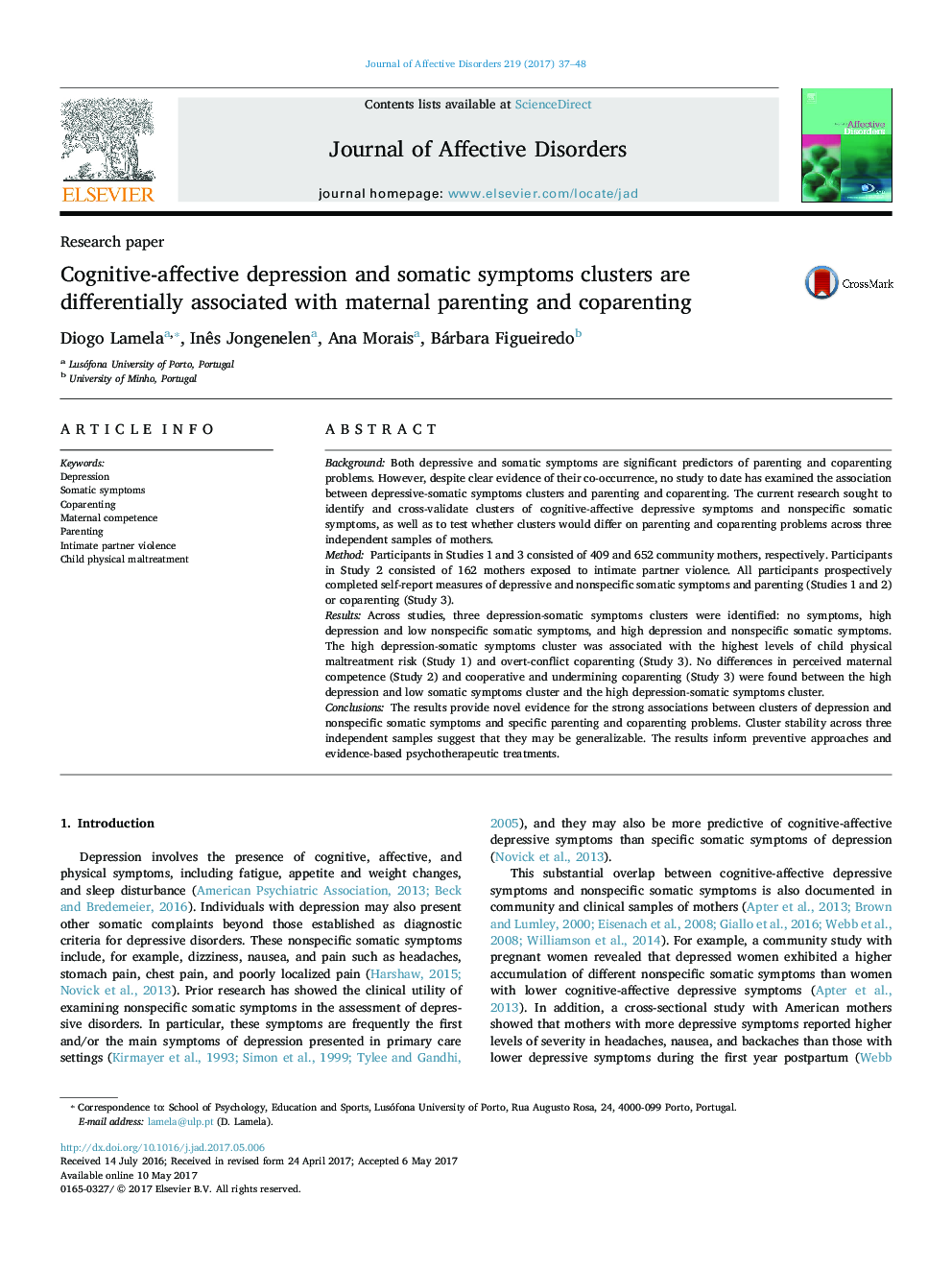| Article ID | Journal | Published Year | Pages | File Type |
|---|---|---|---|---|
| 5721872 | Journal of Affective Disorders | 2017 | 12 Pages |
â¢Three clusters of depression and somatic symptoms were found.â¢High depression-somatic symptoms were associated with child maltreatment risk.â¢High depression-somatic symptoms were associated with overt-conflict coparenting.â¢No differences between depression clusters in perceived maternal competence.â¢No differences between depression clusters in undermining/cooperative coparenting.
BackgroundBoth depressive and somatic symptoms are significant predictors of parenting and coparenting problems. However, despite clear evidence of their co-occurrence, no study to date has examined the association between depressive-somatic symptoms clusters and parenting and coparenting. The current research sought to identify and cross-validate clusters of cognitive-affective depressive symptoms and nonspecific somatic symptoms, as well as to test whether clusters would differ on parenting and coparenting problems across three independent samples of mothers.MethodParticipants in Studies 1 and 3 consisted of 409 and 652 community mothers, respectively. Participants in Study 2 consisted of 162 mothers exposed to intimate partner violence. All participants prospectively completed self-report measures of depressive and nonspecific somatic symptoms and parenting (Studies 1 and 2) or coparenting (Study 3).ResultsAcross studies, three depression-somatic symptoms clusters were identified: no symptoms, high depression and low nonspecific somatic symptoms, and high depression and nonspecific somatic symptoms. The high depression-somatic symptoms cluster was associated with the highest levels of child physical maltreatment risk (Study 1) and overt-conflict coparenting (Study 3). No differences in perceived maternal competence (Study 2) and cooperative and undermining coparenting (Study 3) were found between the high depression and low somatic symptoms cluster and the high depression-somatic symptoms cluster.ConclusionsThe results provide novel evidence for the strong associations between clusters of depression and nonspecific somatic symptoms and specific parenting and coparenting problems. Cluster stability across three independent samples suggest that they may be generalizable. The results inform preventive approaches and evidence-based psychotherapeutic treatments.
